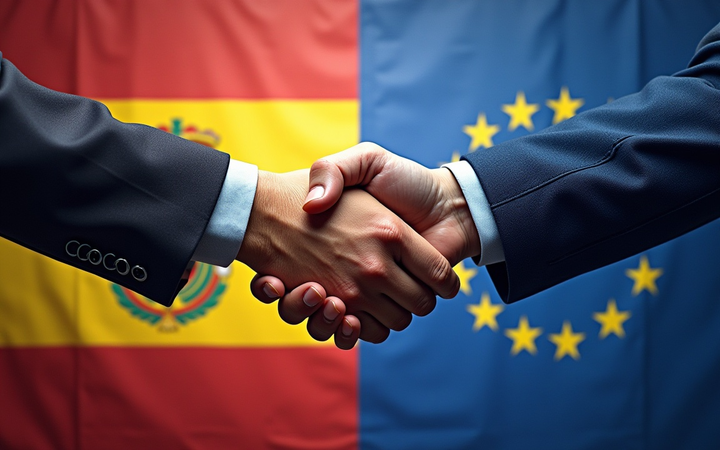On Wednesday, the European Commission presented the European Union’s long-awaited trade agreement with South America’s Mercosur bloc for approval, while also proposing protections to mitigate France’s greatest objections.
The agreement, signed in December with Argentina, Brazil, Paraguay, and Uruguay, would be the EU’s largest trade deal in terms of tariff cuts. It comes 25 years after the conversations originally started.
Ratification necessitates support in the European Parliament as well as a qualified majority of EU governments—at least 15 of the 27 member states, accounting for 65% of the bloc’s population.
Balancing trade gains and farm concerns
Germany and Spain have been among the most vocal supporters, describing the Mercosur agreement as a method to mitigate losses from President Donald Trump’s tariffs and lessen Europe’s dependency on China, notably for key minerals.
France, the EU’s top beef producer, has already described the treaty as “unacceptable.” Poland has also expressed strong opposition, citing potential dangers to its agricultural sector. Together with allies, the two formed a potential blocking coalition.
The Commission attempted to undercut the resistance by instituting a safeguard mechanism. Preferential access to sensitive agriculture imports, such as beef, may be revoked if volumes increase by more than 10% or prices fall by the same amount in any member state.
Brussels would have three weeks to respond after a complaint was made.
In addition, the Commission announced that it will closely monitor imports and put aside a €6.3 billion ($7.38 billion) crisis fund to assist farmers across the EU.
France softens, Poland stands alone
French Trade Minister Laurent Saint-Martin labelled the safeguard clause a step forward in a post on X.
That response indicated a shift from Paris, where officials had been among the toughest challenges to approval.
Poland, however, reiterated its opposition. We had to say ‘no’ to the agreement, but we ‘no longer had the partners needed to stop it,” said Polish Prime Minister Donald Tusk. In light of that fact, he said that the Commission’s defence mechanism was essential.
Diversifying trade in Trump’s shadow
The Commission has framed the Mercosur pact as part of a broader strategy to diversify trade ties. Since Trump’s re-election last November, the EU has accelerated negotiations with India, Indonesia and the United Arab Emirates, while strengthening relationships with Britain, Canada and Japan.
On the same day it presented the Mercosur text, Brussels also prepared to submit an updated EU-Mexico agreement, concluded in January, for consideration.
Farmers and green groups push back
The deal is controversial among European farmers who argue it will inundate the market with low-grade South American beef and other products that flout EU food safety and environmental standards.
Those claims have been dismissed by the Commission as imports would be subject to existing legislation.
Environmental organisations have also been fierce opponents. The deal has been dubbed a “climate-wrecking” pact by Friends of the Earth, which argues that it will drive deforestation and undermine EU climate policy.
Critics in the European parliament — including the Greens and the far right — are looking to scupper the deal in the ratifying phase.
Even so, the scales tip to approval. The failure to block the deal by a sufficiently large coalition among EU governments suggests the wind is now in the sails of backers of the agreement.
Access to minerals and markets
Proponents emphasise the strategic benefits. South America provides a supply of crucial minerals for Europe’s green transition, particularly lithium for batteries, while the EU relies significantly on China.
At the same time, Mercosur is an expanding market for European automobiles, machinery, and chemicals.
Supporters also highlight agricultural prospects. EU cheese, ham, and wine producers stand to benefit from lower tariffs and better access to South American consumers.
Whether the promised benefits offset the risks to Europe’s farmers and climate policy will be tested in the coming months as legislators and governments consider their options.
The post EU pushes Mercosur trade pact toward approval with farm safeguards appeared first on Invezz

